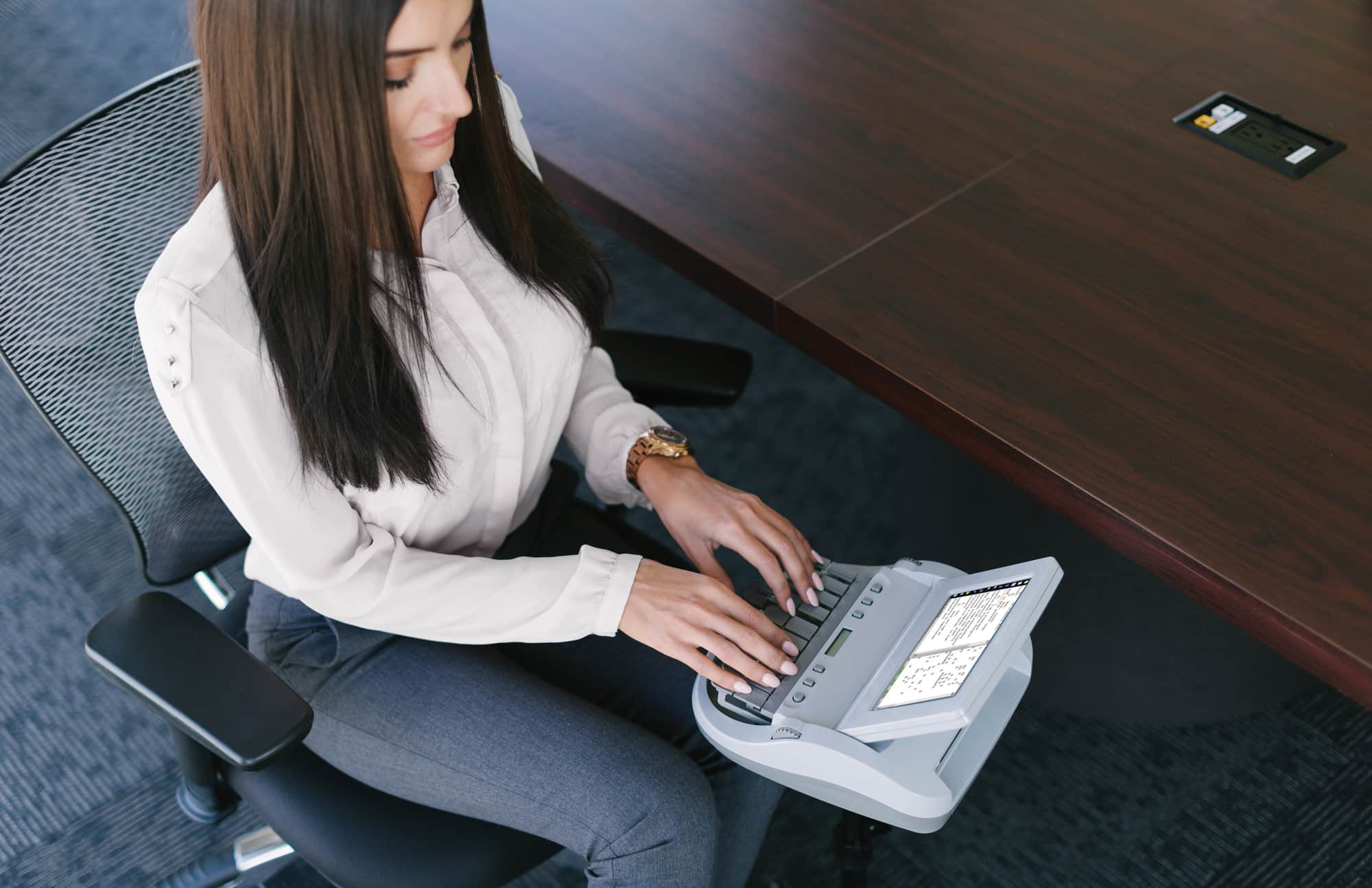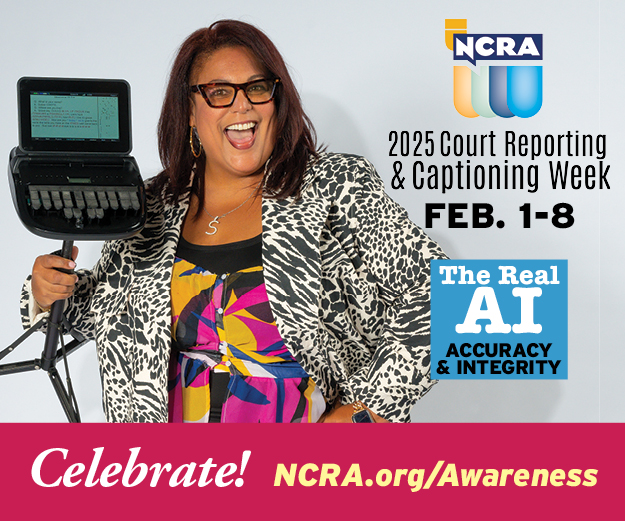Understanding the Important Duty of Court Reporting in Legal Proceedings
Court reporting is often neglected, yet it's vital in lawful proceedings. Let's check out the basic features of court reporting and its significance in the lawful landscape.
The Background of Court Coverage
Court coverage has an abundant history that dates back to old human beings, where scribes utilized numerous approaches to record spoken words. By the 16th century, modern shorthand systems started to take shape, making it possible for court reporters to create precise records effectively.
In the 19th century, the innovation of the typewriter changed the occupation, making it simpler to develop readable documents. The intro of steno equipments in the 20th century additionally advanced court coverage, permitting real-time transcription throughout trials. Today, stenotype reporter play a considerable role in legal process, ensuring that every word talked in the courtroom is precisely documented. Understanding this background highlights the significance of court reporting in preserving a reasonable legal system.
The Abilities Required for Court Reporters
As a court reporter, you need strong typing abilities to keep up with the busy discussion of lawful procedures. Your ability to listen diligently is equally as crucial, making certain every word is recorded properly. Grasping these abilities is essential to providing specific and reputable records.
Proficient Inputting Capabilities

Strong Paying Attention Skills
Solid paying attention abilities are crucial for court press reporters, as they should accurately catch talked words in real time. This ability helps you separate between audio speakers, recognize lawful jargon, and follow complicated conversations. Ultimately, solid paying attention abilities make you an indispensable asset in lawful proceedings, making sure quality and precision in the court document.
The Modern Technology Behind Court Reporting
In the domain of legal proceedings, modern technology plays a necessary function in boosting the precision and effectiveness of court reporting. You're most likely accustomed to the conventional stenotype device, but modern court reporters now utilize advanced software program that integrates with these makers, permitting real-time transcription. This implies you can have instant accessibility to the transcript as the procedures unravel.
Digital audio recording is one more technical development that's acquiring grip. It records every spoken word, guaranteeing absolutely nothing is missed out on. Some press reporters use voice recognition software, which can aid simplify the transcription process, though it still needs human oversight for precision.
Furthermore, cloud-based storage permits simple accessibility and sharing of transcripts, enhancing partnership among legal groups. By leveraging these modern technologies, court press reporters can give premium, prompt records that are important for the lawful process. Welcoming this technology not only enhances your understanding yet additionally ensures dependability in legal documents.
The Court Coverage Process

As legal proceedings unfold, the court reporting procedure ends up being essential in capturing every detail precisely. You'll locate that a court reporter plays a crucial duty by recording talked words into composed message in see page real-time. When you tip into the courtroom, the reporter is already prepared, geared up with specialized devices like stenographic machines and audio recording gadgets.
Throughout the procedures, the press reporter pays attention diligently, inputting out every little thing claimed, from witness testimonies to legal representatives' arguments. You may notice them stopping briefly periodically to ensure clarity or to request a repeat if something had not been clear. After the session, the press reporter evaluates the transcript, making needed edits for readability.
This entire procedure not just assures an extensive document yet likewise prepares you for future reference during allures or instance evaluations. In the fast-paced environment of a courtroom, the court reporting process is crucial for maintaining a precise account of occasions.
The Importance of Precision in Transcripts
While a stenotype reporter's main duty is to record talked words, the accuracy of these transcripts is critical for the honesty of lawful process. When you're involved in an instance, you rely upon accurate paperwork to understand the occasions and debates provided. Any type of errors in transcription can bring about misunderstandings, false impressions, or even wrongful judgments.
Accurate records ensure that every detail is caught, supplying a trusted document for judges, lawyers, and juries. This level of detail is necessary throughout appeals or when referencing past statements. If a transcript has errors, it can threaten the whole legal process, possibly impacting results.
Moreover, exact records maintain the civil liberties of all celebrations entailed, advertising justness and transparency. Whether you're a lawyer preparing for test or a witness reflecting on your testament, you can rely on that the court reporter's ability in precision plays a considerable duty in your instance's success.
The Duty of Court Reporters in Different Legal Settings
Stenotype reporter play an essential duty in different lawful settings, from tests to depositions and legal hearings. You'll find that their work guarantees every talked word is precisely captured, which is important for the legal procedure. Comprehending how their responsibilities differ imp source across these settings can highlight their effect on the justice system.
Court Reporters in Tests
In any type of lawful trial, you'll locate that stenotype reporter play an essential function in recording the process with accuracy and accuracy. They transcribe everything talked in the court, ensuring that every word is recorded for future reference. This record comes to be crucial for allures, permitting higher courts to evaluate the test's integrity. Stenotype reporter must maintain focus and rate, usually making use of specialized devices to stay up to date with fast-paced discussion. Their job sustains lawyers, judges, and juries by offering an official account of statements and disagreements. If disparities arise, the transcript works as a dependable source to clarify what was stated. Eventually, stenotype reporter aid promote the justice system, ensuring transparency and responsibility throughout trials.
Depositions and Legal Hearings
Beyond trials, court press reporters also play an essential function in depositions and lawful hearings. Court reporters supply real-time transcription solutions, permitting lawyers to adhere to along and deal with any type of concerns promptly. In short, court press reporters are vital in keeping the integrity and clearness of the lawful record in depositions and hearings.
Future Fads in Court Reporting
As innovation proceeds to advance, the future of court reporting promises to be shaped by cutting-edge tools and practices that improve precision and efficiency. You'll likely see increased use fabricated knowledge and real-time transcription solutions, simplifying the reporting process. These innovations can her response help you access records much faster, which can be important for your lawful approaches.
Additionally, incorporating video conferencing and remote reporting will become much more common, allowing you to get in touch with stenotype reporter from anywhere (court reporting). This flexibility can make depositions and hearings much more obtainable, saving both time and resources
You'll additionally notice a focus on electronic recordkeeping, which simplifies the storage space and access of transcripts. With cloud-based services, you'll have the ability to share files safely and work together with your legal group in real-time.
Regularly Asked Inquiries
What Is the Typical Salary of a Court Reporter?
The ordinary income of a stenotype reporter differs by place and experience, but you can anticipate it to vary from around $50,000 to $80,000 yearly. Many elements influence this revenue, consisting of expertise and need.
Exactly how Do I Become a Certified Court Reporter?
To become a licensed court reporter, you'll require to complete a court reporting program, pass a certification exam, and gain sensible experience. It's critical to stay upgraded on sector requirements and proceeding education needs.
What Kinds of Cases Do Court Reporters Cover?
Stenotype reporter cover different instances, consisting of criminal trials, civil lawsuits, depositions, and mediation hearings. You'll find them documenting whatever, making sure accurate records for courts, attorneys, and celebrations included, catching every word talked in legal settings.
Are Court Reporters Required to Have a Level?
Yes, stenotype reporter normally require a degree or accreditation in court coverage. Numerous programs supply specialized training, guaranteeing you gain the skills needed for exact transcription and lawful paperwork in numerous settings.
Can Court Reporters Work Remotely?

Comments on “The Future of court reporting: How Voice Recognition Is Reshaping Legal Transcriptions”